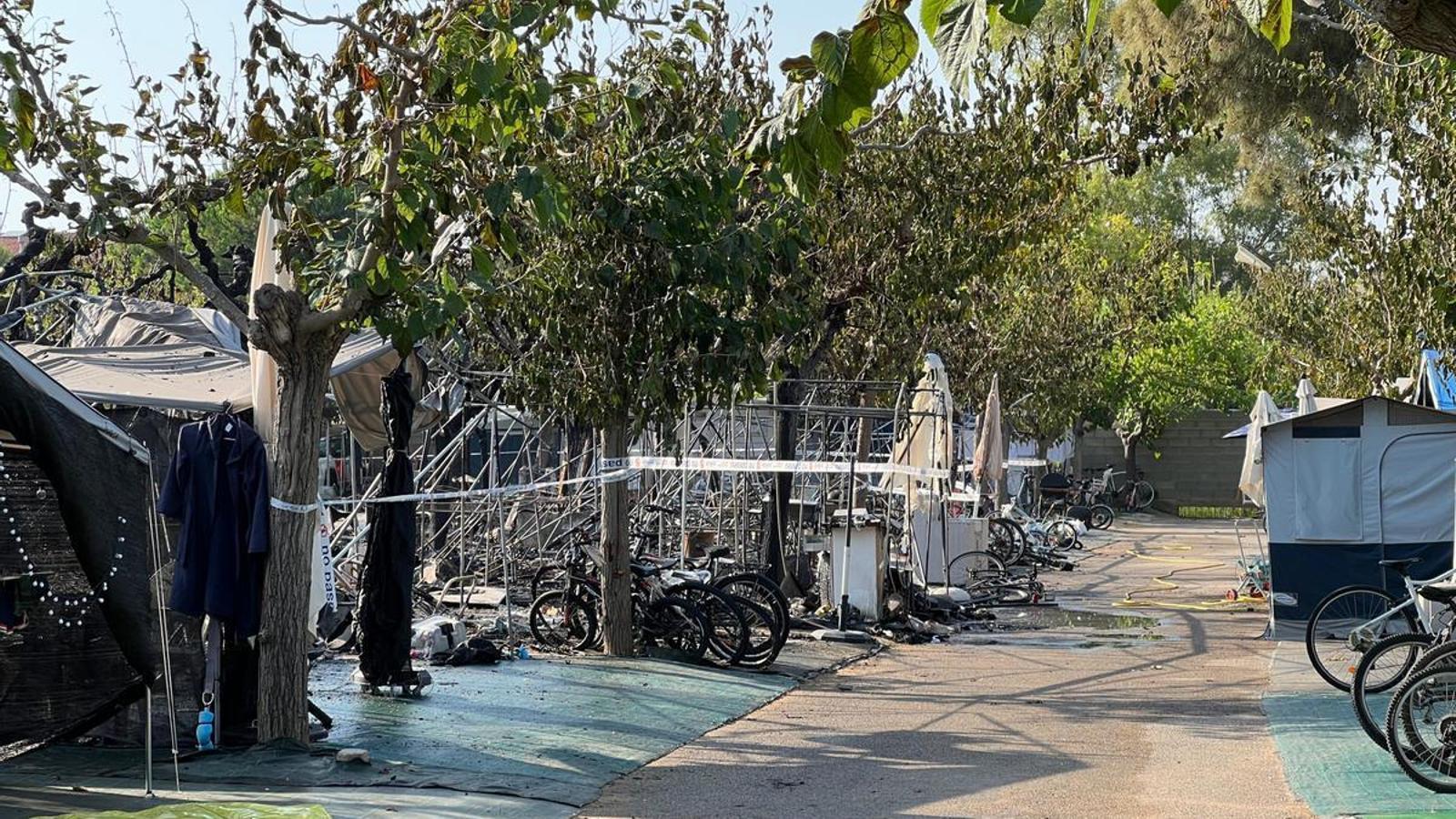The law does not require self-protection plans in campsites with fewer than 5,000 guests.
Establishments with less capacity are not required to have public address systems or emergency exits.


TarragonaSome of the campers who were there early Monday morning They had to run to escape the flames The evacuation of 18 campsites at the Vendrell Platja campsite was chaotic the following day. Witnesses complained that the campsite didn't use its PA system to warn of the fire and that there were no emergency exits. In fact, some users mistook an access point for staff members for the emergency exit and tried, unsuccessfully, to escape through that door, but the padlock on it couldn't be opened.
At that time, around 3:15 a.m., there were 1,700 guests on the premises, most of them sleeping, and only three staff members: one at the main entrance and the other two inside. The three night shift workers immediately called 112 and the campsite management, and did their best to evacuate all the guests, some of whom were staying there for the first time and were unfamiliar with the area. Among caravans and tents, the fire found fuel and spread rapidly, but the evacuation was carried out without any injuries. The dog in the caravan where the fire apparently started died. Witnesses consulted by the newspaper ARA stated that they will file a formal complaint because they felt neglected during the emergency, but the reality is that a campsite of this nature is not required by law to have a self-protection plan (PAU).
The decree that regulates the safety of these spaces is 30/2015. The text determines which activities require a self-protection plan to minimize danger in the event of an emergency and also establishes the conditions and who must ensure compliance. Campsites like the one in El Vendrell are included in the type of activities that "take place in a delimited space" but outdoors and, as they do not reach 5,000 people, are exempt from the control of the Generalitat (Catalan Government).
Civil Protection only requires a self-protection plan in small campsites when they are close to wooded areas or chemical sites or in flood zones. In all other cases, it is the local councils that have the authority to request safety measures at campsites in exchange for granting them a license, but it is not common practice. In the case of El Vendrell, the local council had not required it, but the campsite has, since 2022, had an emergency plan processed of its own volition. This plan establishes what to do if an emergency occurs, but does not even require having an internal PA system to notify guests, a measure that would have facilitated evacuation early Monday morning.
Since 2021, there has been a technical training of firefightersbut it is only "applicable to new establishments and significant modifications to existing establishments." This instruction determines the number of fire extinguishers a campsite must have and also requires establishments to have plans with the layout of the tents, but it also doesn't mention emergency exits or public address systems.
The larger ones, more controlled
Civil Protection sources explained to the newspaper ARA that campsites with approved self-protection plans are much more closely monitored because regulations require them to demonstrate that all evacuation measures can be followed and also to conduct drills, which firefighters can attend to verify whether the emergency response has worked. All of this facilitates the Generalitat's oversight. However, the rest of the campsites depend on local governments, which, in some cases, do not require any protection plans.
The spokesperson for the Vendrell Platja campsite, Ramon Orriols, explained to the newspaper ARA that "we learn from every situation" and added that, with the help of professionals, they will analyze what happened to see how they can improve and implement the appropriate changes. They do not rule out, for example, installing a PA system. "We will work, as always, rigorously," says Orriols, aware that these security measures, which they are not required to follow, benefit the facilities themselves. The president of the Catalan Camping Federation, Miquel Gotanegra, points out that Catalonia is "one of the most important camping destinations in Europe" and assures that all campsites comply with regulations. "We are the first to be interested in ensuring things are done properly," he says. Both Orriols and Gotanegra also appeal to personal responsibility, as campers increasingly have more flammable material. In fact, the area where the fire occurred is where seasonal guests, who stay all summer, were staying. "It's their second home," Orriols explains. This means they have much more equipment on the plot: bicycles, sun loungers, awnings, and even entire stoves; all highly flammable material that fueled the fire until the firefighters were able to put it out.
Open case
The Central Unit for Visual Inspections of the Mossos d'Esquadra (Catalan Police) arrived the day after the fire at the El Vendrell campsite to begin an investigation that will primarily determine how the blaze started. The largest fire burned 16 campsites, but half an hour later, a second fire broke out in another area of the campsite, burning two more campsites. So far, the only information available is that it was not arson. It remains to be seen whether it was due to a faulty power line or an accident involving a camper.
